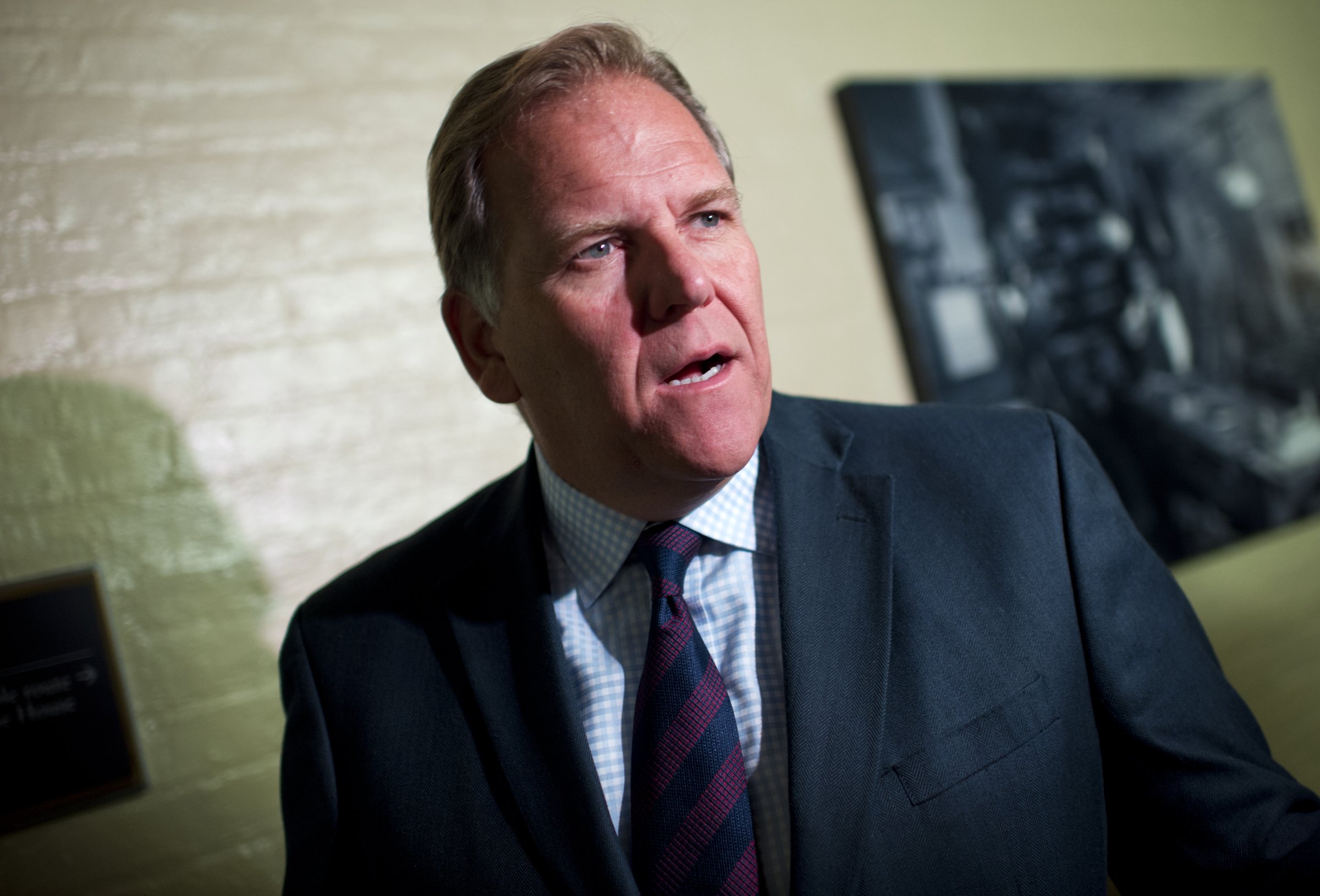
Two years ago, a prominent Middle East ally of the United States came to Washington to highlight a nascent Islamist threat emanating from Syria. Around the same time, several of us on Capitol Hill warned that the chaos burgeoning in Syria would not be contained within that country’s borders. More likely, we argued, the conflict would destabilize a strategically critical region and provide a safe haven from which extremist forces would plot future attacks. The Administration responded with essentially, thanks, but no thanks. The President’s response exacerbated the threat, and resulted in more chaos and a loss of trust by our allies. Now, the Administration is slowly waking up to the threat from ISIS.
ISIS’s rise comes, of course, in the context of a complex and evolving Middle East, where conflicts rage within both states and religions. The complexity of the problem, however, does not minimize the threat to the United States or remove our need to act quickly. To date, our policy responses have been either abject paralysis or anemic and half-hearted measures. After years of watching these events unfold, we no longer have time to wait for better circumstances.
It is well past time for the U.S. to not only act, but to lead. Military assessment teams and ad hoc air strikes may provide temporary gains, but they will not defeat this enemy. America should respond with the seriousness, focus and might that the threat deserves. The problem is complex, but our plans must be clear.
First, we need to reengage the plans that were provided by our Arab League partners two years ago, the plans that had our Arab League partners leading the way. America must build a coalition of regional partners. We need not and should not go it alone. Leaders in Saudi Arabia, the United Arab Emirates and Turkey have a keen interest in destroying this threat to their region, and they have capabilities to bring to the fight. These partners, however, have requested the coordinating influence and guidance of the world’s largest military and greatest superpower. Only the United States can help plan, coordinate and assist in accomplishing the missions needed to defeat ISIS.
Second, we must be willing to use the expertise and capabilities of America’s experienced military and intelligence operators. Air strikes are ultimately effective only when coupled with sound intelligence about important targets and changing battlefield dynamics. To achieve success, we must be willing to develop the needed information for a robust and constant air campaign in an evolving battle space. Only a relentless pace of operations against key leadership figures, logistics and infrastructure will keep the enemy from regrouping and effectively responding.
Third, we must partner with local forces to develop a sensible ground campaign; air strikes alone cannot defeat this dynamic enemy. News reports already indicate that ISIS is altering its tactics and operational security to hide from future strikes. Our elite military forces and intelligence operatives must act as a force multiplier for the Kurdish Peshmerga, Iraqi Security Forces and even the moderate opposition in Syria and our Arab League partners.
Finally, we must not let the standard trope that there be “no boots on the ground” become a mantra of self-defeat or a definition of intelligence operations and special capabilities. We do not need American infantry and tanks rolling back into Anbar Province in Iraq or into northern Syria. But it is not enough simply to send a few hundred troops to defend American diplomatic compounds. We need to defeat the ISIS safe haven in Syria, eliminate it on the battlefields in Iraq and stop its march into the Levant. This is a terrorist organization that has an army, and we need to treat it that way. To defeat this enemy, we will have to risk Americans who will be operating in the fight. But let’s be clear, American lives around the world are presently at risk from ISIS’s brutality.
The strategy to defeat radical Islamic terrorists requires more than defeating them at one dam or one mountain top. The United States of America needs to lead an effort among like-minded nations to defeat the terrorist threat from Mauritania to Malaysia and everywhere in between. This doesn’t mean we need to militarily invade every nation where there is a terrorist threat, but we should use every aspect of hard and soft power to accomplish our objective. We should structure our national security apparatus to defeat this threat. Fooling ourselves into thinking some terrorists are JV and that ISIS really isn’t a threat to the U.S. is dangerous. The last time we underestimated al-Qaeda and their ilk, which has grown to include Western passport holders fighting with them, it cost 3,000 lives on our own East Coast.
Mike Rogers (R-Michigan) is the Chairman of the House Intelligence Committee.
More Must-Reads From TIME
- The 100 Most Influential People of 2024
- Coco Gauff Is Playing for Herself Now
- Scenes From Pro-Palestinian Encampments Across U.S. Universities
- 6 Compliments That Land Every Time
- If You're Dating Right Now , You're Brave: Column
- The AI That Could Heal a Divided Internet
- Fallout Is a Brilliant Model for the Future of Video Game Adaptations
- Want Weekly Recs on What to Watch, Read, and More? Sign Up for Worth Your Time
Contact us at letters@time.com